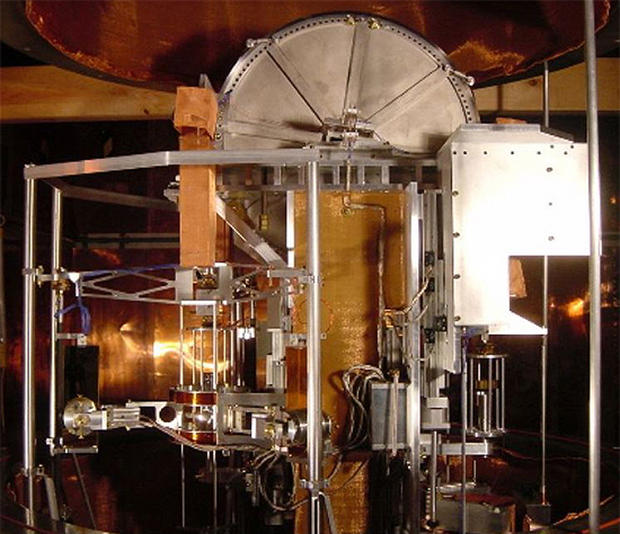Time to Do Away with the Kilogram?
Locked away in a vault at France's International Bureau of Weights and Measures is a very important platinum-iridium cylinder. For the last 130 years, that cylinder has served as the base measure for the precise weight of a kilogram.
To make sure the weight measurements were standardized, 40 units got made at the time. But a global effort is underway to seek revisions to the International System of Units due to changes in a unit's mass that take place over time. The upshot: a kilogram may not still be a kilogram. The degradation may also cause other problems that extend to potential inaccuracies in the definition of electric current and luminous intensity.
"In the current (system of units), it's not just the unit of mass that depends on the kilogram," according to an NIST statement. "The definitions of the ampere (electric current), mole (amount of substance) and candela (luminous intensity) ultimately depend on the platinum-iridium artifact. For example, a mole is currently defined as the number of carbon-12 atoms whose total mass is 12 grams," according to the National Institute of Standards and Technology (NIST).
The proposal thus is calling for defining he kilogram in terms of a different mathematical constant based on quantum physics.The proposed revision "puts the SI on a firm foundation," says Ambler Thompson, a NIST scientist involved in the international effort. "We get rid of the last artifact."
On Oct. 15, a committee affiliated with the International Bureau of Weights and Measures called the CIPM, passed a resolution to revamp the modern measurement system. The next step will be for an affiliated committee called the CGPM to consider the idea in October 2011. If the resolution passes, according to Stein, the new modern measurement system might be in place later in the decade.
"This is actually an advance in the science of measurement," said NIST spokesman Ben Stein. "This is the next phase. There have been discoveries in measuring the constants of nature, such as the speed of light, the amount of energy in a quantum of energy....we know them pretty well now. These numbers are not changing, so why not define the units in terms of these constants? They're from the natural world."
